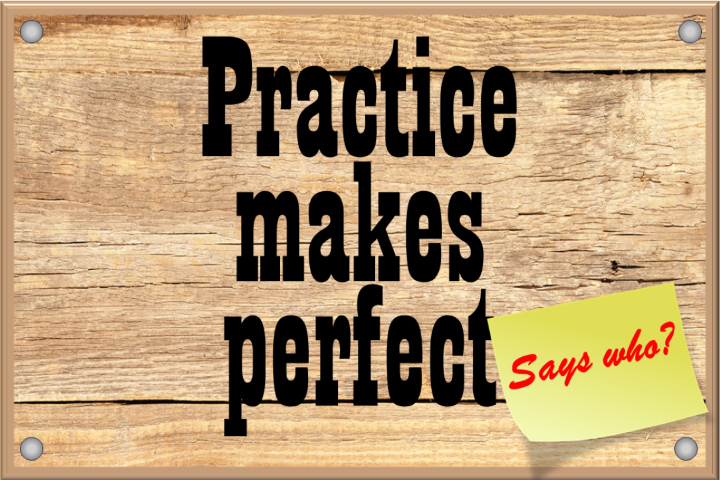
Practice makes perfect. Or not.
Serena was confident in her ability to create miniature models. Her keen eye for design had won her accolades in her previous job where she made high-end models for dollhouse enthusiasts. But now, working for a commercial architect, she was tasked with making complex models to show property developers as the firm bid on high value development projects. No detail could be left out and it all needed to have a real-life feel to it. It was up to her to create a miniaturised replica of an entire neighbourhood – a place where people not only worked, but lived, went to the gym, socialised and created community – this was the ‘dream’ her completed model needed to fulfill, and she worked very hard on it, but the architects were just not happy with her work.
Serena’s parents had always told her that if at first you don’t succeed, try, try again. This had served her well. Until now. In the last three months, she tried and tried, but to no avail – nobody was satisfied with her models because they didn’t seem realistic enough.
She confided in a colleague who was sympathetic and consoled her and reminded her that practice makes perfect without offering any guidance as to the difference between designing for the enthusiasts and creating complex architectural spaces for huge development proposals. She kept on practising what she knew but her efforts continued to be rejected. She was beginning to think she was completely incompetent.
What are you practising?
Our old adages are helpful sometimes. Picking yourself up after a failure and trying again is a sign of resilience and determination – both are aspects of success. Similarly, being willing to practise is a sure way to improving one’s skill.
But there’s a huge caveat here: practising the wrong thing can backfire!
If no one tells you that you’re using the wrong tools for the job or that your approach is based on a completely different set of principles than what the current job requires, practice isn’t going to bring success.
In fact, when you repeat the same thing, you will reinforce that approach – whether it’s good or bad, right or wrong. You can very easily become perfect at doing something incorrectly.
Perhaps we need to recall another oft-used expression: Insanity is doing the same thing over and over and expecting different results.
So, how can you get different and better results?
- Change your perspective – if you see the task differently, you are likely to address it in a different way and even see your results in a different way.
- Get feedback – real feedback – about what you practise and what you produce. What does work? What doesn’t? What new skills do you need to develop?
- Be willing to let go of your current approach and try something completely different.
- Ask for help.
When it comes to improving skills or learning new tasks, it’s essential to be clear about what you are really trying to learn; to use yet another adage, remember the devil is in the detail!
The neuroscience of learning – minicourse

Want to know what it really takes to learn? This 10-minute mini-course will give you some insight on how we learn so you can improve the learning culture in your team or organisation.
go to course